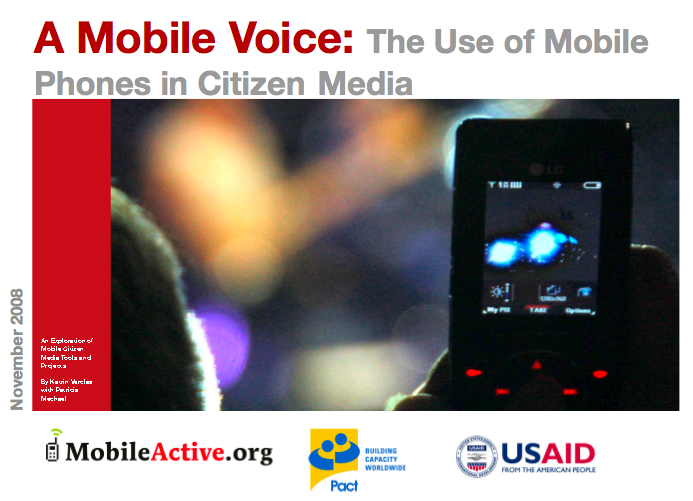We are very privileged to co-host MobileTech for Social Change, a barcamp on 4 November 2008 in San Franciso from 10 am - 2 pm. We are especially pleased to co-organize the event with Dan Appelquist from Mobile2.0, Mobile Monday UK, and Vodacom. Registration is here!
Fresh back from MobileActive08, we'll explore mobile tech to advance social development and social change goals. Expect this to be highly participatory and interactive, and cover anything you wanted to know about using mobiles for social change. MobileTech for Social Change is open to anyone with passion and interest in the topic and since it's a barcamp, bring your ideas, innovations, products, tools, projects, and organizations!
And if you want to be an angel and sponsor the event, contact us at info at mobileactive dot org! Registration again: Go here!




